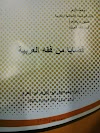In life, we often encounter both trials and blessings, regardless of their magnitude. Typically, trials are associated with negative experiences that harm us, while blessings are seen as positive occurrences that benefit us. However, "good-bad" or "benefit-loss" labels do not inherently lie in the events but rather in our attitudes and responses.
In other words, a trial may be a blessing for one person but not for another, while a blessing can turn into a trial for some yet remain a benefit for others.
When faced with the death of a loved one, it is essential to respond with the appropriate words and prayers. The Prophet Muhammad (peace be upon him) taught us to recite the following prayer during times of calamity:
إِنَّا لِلَّهِ وَإِنَّا إِلَيْهِ رَاجِعُونَ
Innâ lillâhi wa innâ ilaihi râji‘un
"Indeed, we belong to Allah, and indeed, to Him we will return."
According to a hadith in Sahih Muslim, anyone who recites this prayer will receive a reward for their trial and be granted a replacement that is better than what they have lost. This highlights the importance of maintaining a positive outlook even in the face of adversity.
While trials appear singularly, they can be interpreted from various perspectives. They may be seen as punishment, reminders, tests, or challenges. Understanding trials as opportunities for self-reflection (muhasabah) is particularly beneficial, as it encourages individuals to recognize their shortcomings and strive for self-improvement.
The prayer's wording emphasizes the concept of ownership, reminding us that everything ultimately belongs to Allah, the True Owner. It also conveys that no trial is in vain; instead, it can yield rewards if the individual responds appropriately. This prayer embodies optimism, marked by the hope for divine blessings and better replacements in times of loss.
In conclusion, when someone dies in Islam, it is customary to express condolences and recite the prayer mentioned above. This honours the deceased and helps the bereaved find solace in their faith during a challenging time.









